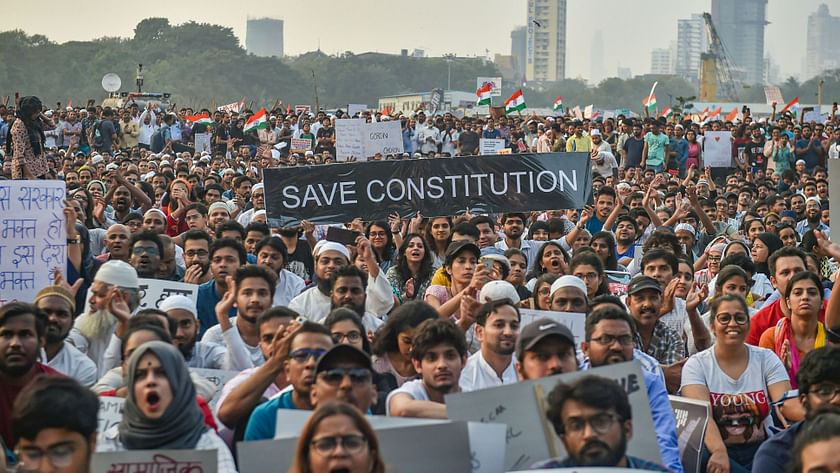A 'level' playing field.
- Team Opinionated

- Oct 24, 2018
- 4 min read
Sexism, sports and what we can do about it
- Proteeti Sinha
The advent of the 21stcentury, while bringing numerous advancements and improvements in technology and social media, has not managed to begin to resolve the issue of sexism in sport. Well, sexism in general, and sexism in sport in particular. While I have noticed this trend and been dismayed by it in the past, such as when one media outlet’s lead story after Katie Ledecky’s dominant win at the Rio Olympics was to do with how her nail polish was chip-free, I was motivated to actually try to do something about it after I had to write a research paper on the gender disparity in sports media coverage.
The literature review that I did left me in shock. Article after article detailed how women’s sports coverage was just 4% (according to UNESCO Director-General Audrey Azoulay)
or less of all sports coverage, how women were portrayed in their conventional gender roles as wives or girlfriends, rather than as outstanding athletes in their own right. The most demoralizing statistic I read was that coverage of women’s sports has actually decreased in the last two decades, in complete contradiction to the heights that female athletes have consistently been achieving.
In articles that I’ve read specifically detailing the Rio Olympics two years ago, I came across a three-time Olympian who won a bronze medal in trap-shooting, who was described as “the wife of a Bears linesman”. This trivialization of female athletes’ incredible achievements by representing them in their conventional heterosexual roles is demoralizing for athletes who have put immense time, energy and effort into their sport.
Immediately after Katinka Hosszu won Olympic gold with a new World Record in the 400 IM, the camera panned to Shane Tusup, who was then her husband and coach, and Dan Hicks of NBC said that he (Tusup) was the one responsible for Hosszu’s success. While no small part of her success ought to be attributed to her coach, it should be noted that that was the first reaction. Of course, Tusup played a huge part in Hosszu’s racing, but Hosszu was the one training for hours on end, and ultimately, swimming that final. In contrast, Kosuke Hagino’s coach (Kosuke Hagino was the gold medalist in the men’s 400 IM) was not panned to immediately after he won gold in the men’s final. Hicks did later say that he had worded his statement differently, but…
I could go on and on with more examples but that would take entirely too long and is available anyway on the internet if you so wish to read.
Now, just writing an article and posting it on the Internet is not going to fundamentally change sexism in sport. But after years of reading sports coverage that both covertly and overtly demean women, I want to do something about it. What can I do? As an 18-year old college student, the reality is that I can’t single handedly bring about change in the how sports are covered. But we all can do some things to reduce the inherent entrenched sexism in sport.
1. Root for your favorite female athletes! By that, I mean, actually watch their games/races. Media executives don’t cover women’s sports because they believe that there won’t be an audience for that. No lie, they’ve actually said that! So: watch your favorite female athlete when time allows you to, tell people about how inspirational they are, root for them! I know I do this all the time with Katie Ledecky & Shirley Babashoff, but there are innumerable others I don’t know of. Tell me about a female athlete you admire, get more people aware of the brilliance of sportswomen.
2. Go watch women’s sporting events in your city! Whether that’s an inter-school tournament, or a college dual meet, go fill up the stands! A week ago, I noticed that there was barely any crowd for a women’s soccer match at my college. If you’re not into sports, I’m sure you know someone who is – go cheer them on! A small act like this can go a long way.
3. Social media is a huge force – and can be used for good! When you witness an amazing feat by an athlete, share it! Tweet about it, story it on Instagram, Snapchat, etc. I know I’ve learnt about a ton of remarkable people like this.
My own contribution for the above: Katie Ledecky! She’s a force. She’s one of the most dominant athletes on the planet, the current World Record holder in the 400, 800, and 1500 freestyles. She’s a 14-time World Record breaker and has 14 world championship titles to her credit. She is so dominant in the distance events that other swimmers don’t fit in the frame. I have a whole bunch of other stats I could share – but I’ll go with this one. It took 30 years to get from 8:24.62 (Tracy Wickham, 1978) to 8:14.10 (Rebecca Adlington, 2008) for the World Record in the 800m freestyle. That’s a 10 second drop, in thirty years. Now, Katie went from 8:13.86 (2013) to 8:04.79 (2016). That’s a 9 second drop, in 3 years. Keep in mind that this is the World Record we’re talking about. The fastest that any woman has ever been over this distance.
Yeah, she’s phenomenal.
I’d love to hear your thoughts, opinions, comments or ideas on sexism in sport. I think it’s an important dialogue worth having, because female athletes are as deserving of respect and recognition as male athletes are. Maybe one day we’ll live in a world when I won’t have to quantify “male” or “female”, and they’ll all be termed as “athletes” because they’ll be treated the same. Maybe.


Comments